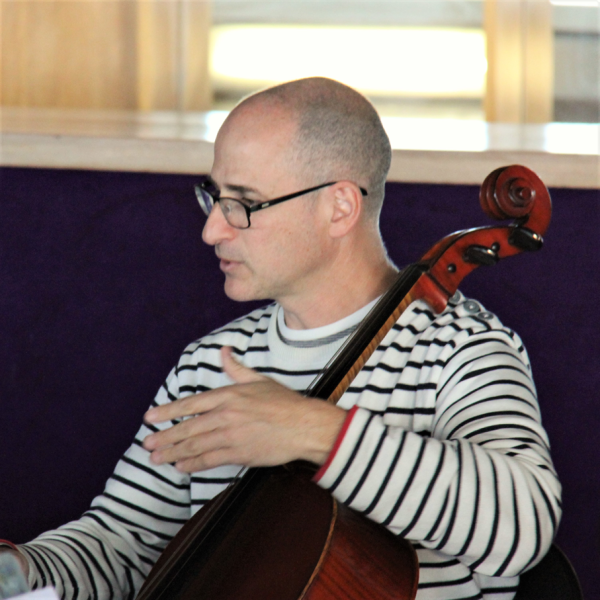
Peter Morrison

About
Cello
AYO National Music Camp: 1983-85
Peter studied briefly at the NSW Conservatorium of Music before embarking on studies in Hungary and America for four years. Upon returning to Australia, he worked full time in the Sydney Symphony Orchestra, freelanced regularly with the ACO, founded a large chamber ensemble and worked with leading contemporary music groups. For the last twelve years Peter has been living in Copenhagen and working as a full-time member of the Danish Radio Symphony Orchestra whilst composing on the side.
Peter performed in the Australian World Orchestra’s 2015 concert series with Sir Simon Rattle OM CBE, which included a thrilling collaboration with AYO.
Q&A
Question: What were your aspirations as a young musician?
Answer At the beginning it was all about having fun. Though I came from a musical background – my mother was a piano teacher and my grandfather was a conductor, who incidentally started the Willoughby Symphony Orchestra in Sydney back in the 60s – I was never pushed to practice six hours per day. A healthy balance was more important, and whilst it might have come in handy to practice a few more scales when young, hitting tennis balls for example also helped enormously with coordination skills.
Question: Where has your musical career taken you?
Answer To many places I might not have had the opportunity to visit otherwise. Through Asia, Europe, America primarily, and often with a few weeks private travel tacked on at the end, because I am not only interested in concert halls.
Question: How did your experiences with the AYO shape your career?
Answer AYO provided the confidence to have a go. I went to two National Music Camps and both times felt a profound energy exchange between students, and between students and staff. Suddenly music wasn’t just a school activity or Saturday afternoons only. It took on a grander scale with AYO and promoted the message of belonging to an important and vital Australian creative community.
Question: What stands out about our young AYO musicians?
Answer Professional musicians sense and understand clearly what AYO musicians are feeling. It’s a little nerve-wracking, albeit exciting when you are young and placed within the ranks of professional players. But through the experience, AYO musicians sense that being invited to AYO is also a privilege. Carried within that invitation is an unspoken agreement to being attentive to learning new things from tutors, conductors and – if they are really tuned in – from each other.<br> <br> From a teacher’s or guiding perspective, if I can walk away knowing that young players have picked up skills through AYO itself and from the AYO/AWO collaboration and workshops – skills which allow them to express themselves better, to cooperate better and to analyse and solve problems in the future – then I can feel confident they have put that attention to good use and will strongly carry the next generation of musicians.
Question: What is the best advice that you could offer a young musician?
Answer Drop the ego, ask questions and learn as much as possible. Competition is for yourself. Collaboration is the main aim, for helping strengthen not only your own identity and your sense of purpose in the community you find yourself living in, but also those of others around you. AYO is a tool for learning that.<br> <br> It’s easy in life to get caught up in issues that seem enormous at the time but are usually not. So keep perspective on the bigger picture. You have an important voice. Use it wisely and the next generation will benefit from it.
Question: If your life were a movie, who would compose the soundtrack?
Answer Me! I’m a composer too and wild about film. I travel to Europe once or twice per year to see documentary and feature film festivals when I can, sometimes squeezing in 25 films in a week. But well, ok, choosing beyond that, I love those classic 40s film scores of the European refugee composers such as Erich Korngold, Miklos Rozsa and the like. They are so richly scored.